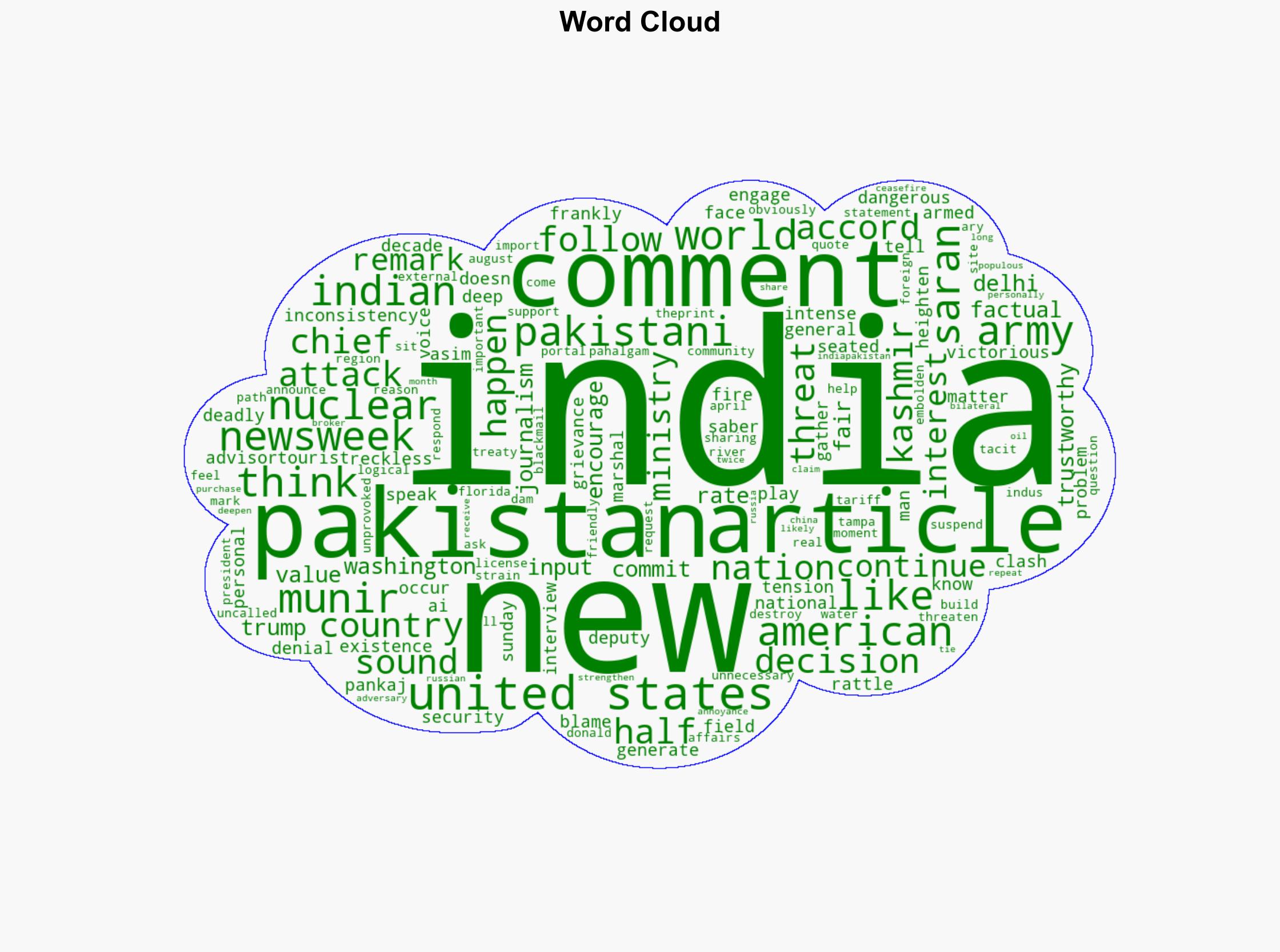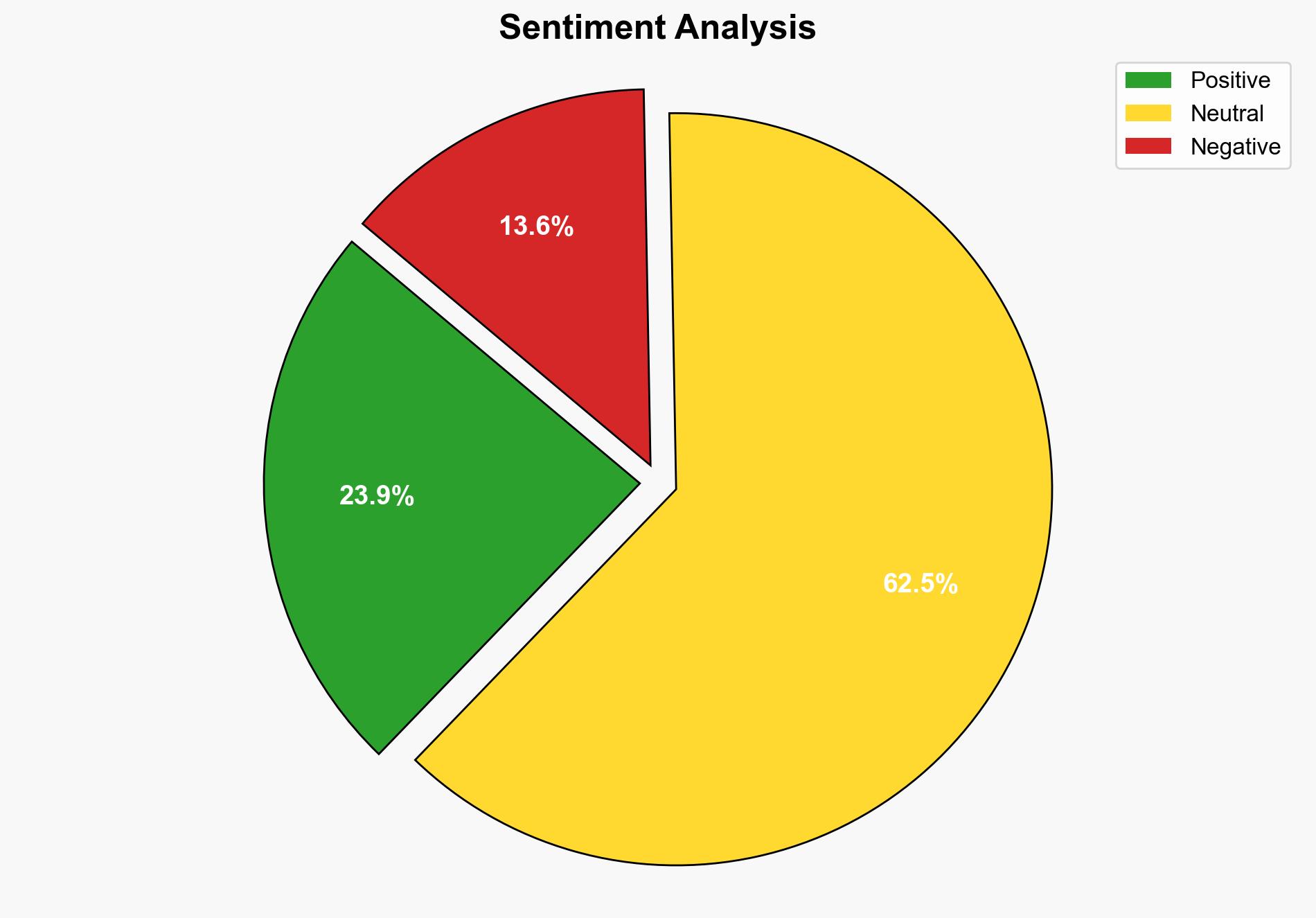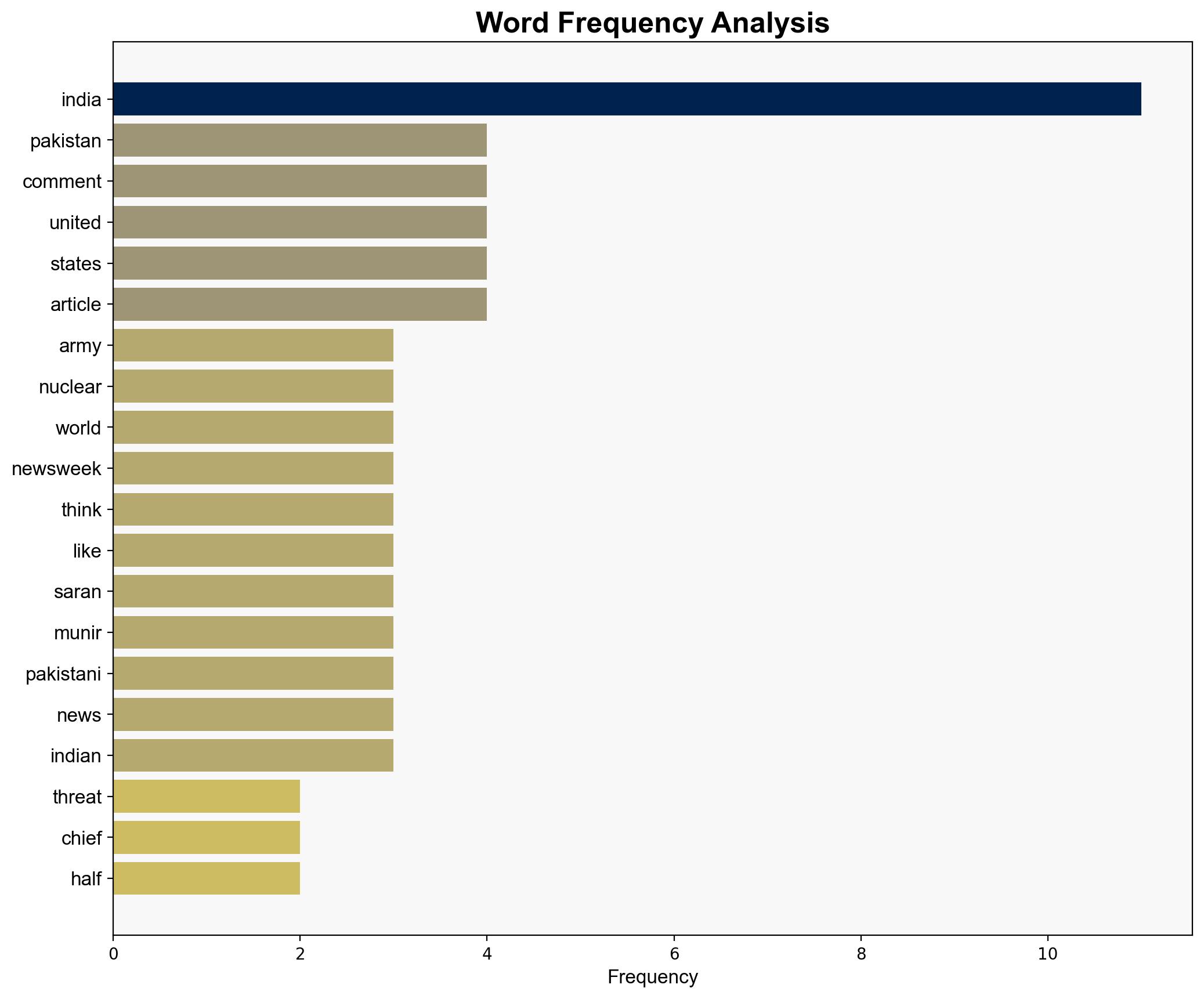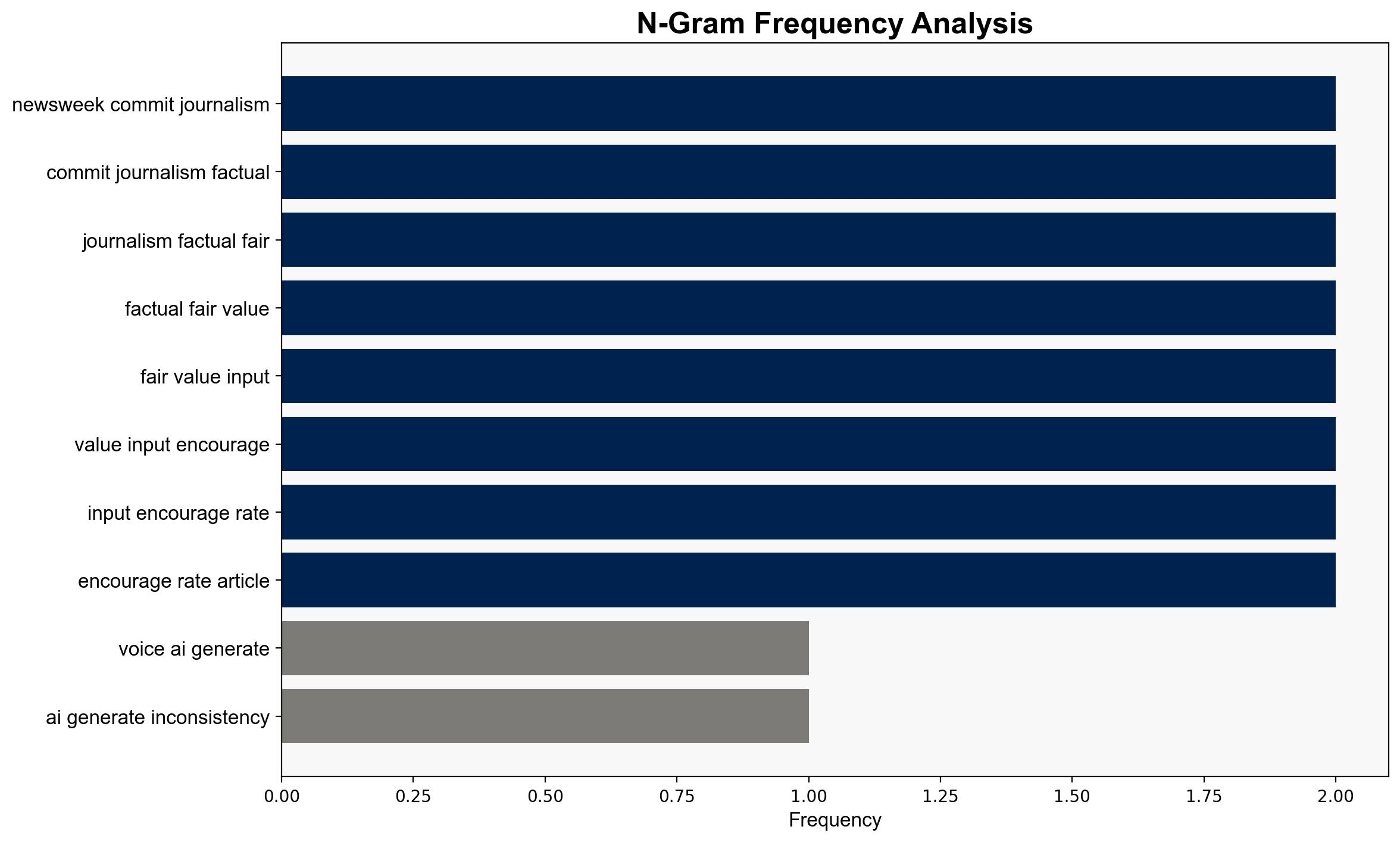Pakistan Playing With Fire on Nuclear Threat Says Former Indian Official – Newsweek
Published on: 2025-08-11
Intelligence Report: Pakistan Playing With Fire on Nuclear Threat Says Former Indian Official – Newsweek
1. BLUF (Bottom Line Up Front)
The strategic judgment indicates a moderate confidence level that the recent statements by Pakistan’s military leadership are primarily a strategic posturing rather than an immediate escalation towards nuclear conflict. The most supported hypothesis is that Pakistan is leveraging nuclear rhetoric to gain diplomatic leverage and domestic support. Recommended actions include diplomatic engagement to de-escalate tensions and monitoring for any shifts in military readiness or rhetoric.
2. Competing Hypotheses
1. **Hypothesis A**: Pakistan’s statements are strategic posturing aimed at gaining diplomatic leverage and domestic political support. This hypothesis suggests that the rhetoric is not indicative of an immediate threat but rather a tool to influence international and domestic audiences.
2. **Hypothesis B**: Pakistan’s statements reflect a genuine escalation in nuclear threat posture, potentially driven by internal pressures or miscalculations. This hypothesis considers the possibility of heightened military readiness and a shift in strategic policy.
Using ACH 2.0, Hypothesis A is better supported by the lack of immediate military movements and the historical pattern of using nuclear rhetoric for strategic gains without escalation.
3. Key Assumptions and Red Flags
– **Assumptions**: It is assumed that Pakistan’s leadership is rational and seeks to avoid actual conflict. The assumption that international diplomatic pressure will prevent escalation is critical.
– **Red Flags**: Any sudden military mobilization or changes in nuclear posture would challenge Hypothesis A. The lack of direct communication between India and Pakistan increases the risk of misinterpretation.
– **Blind Spots**: The internal dynamics within Pakistan’s military and political leadership are not fully transparent, which could affect decision-making unpredictably.
4. Implications and Strategic Risks
– **Geopolitical**: Escalation could destabilize the region, affecting global security and economic interests.
– **Economic**: Increased tensions may impact regional trade and investment, particularly if sanctions or military actions are considered.
– **Psychological**: Continued rhetoric may increase public fear and pressure governments to take hardline stances, reducing diplomatic flexibility.
5. Recommendations and Outlook
- Engage in diplomatic dialogue with both Pakistan and India to reduce tensions and clarify intentions.
- Enhance intelligence monitoring of military movements and communications to detect any shifts in posture.
- Scenario Projections:
- Best Case: Diplomatic engagement leads to de-escalation and renewed dialogue.
- Worst Case: Miscommunication leads to military skirmishes or accidental escalation.
- Most Likely: Continued rhetorical posturing without significant military escalation.
6. Key Individuals and Entities
– Pankaj Saran
– Asim Munir
– Donald Trump
7. Thematic Tags
national security threats, nuclear rhetoric, regional focus, diplomatic engagement





